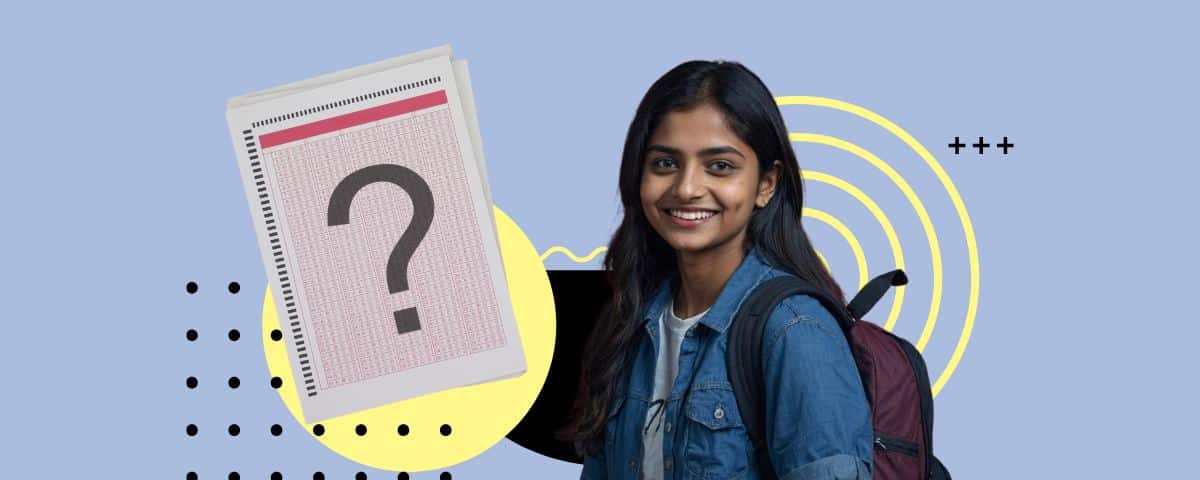All you need to know about Indian Engineering Services Exam
Many of you dreamed of getting a top-ranked Central Government job. In terms of that, Indian Engineering Services is one of the top government services. But many of you don’t know many details about it.

Introduction
Students always dreamed of getting a good job and securing their future. Many of you dreamed of getting a top-ranked Central Government job. In terms of that, Indian Engineering Services is one of the top government services. But many of you don’t know many details about it. So in this article, I will discuss everything about Indian Engineering Services Exam like- what is it, the Exam process, Syllabus, and every small detail. Because if you know every detail about the exam, you can prepare wisely and keep everything in mind. So it will help you to secure a good mark in the exam.
Basic details about Indian Engineering Services
The Engineering Services Examination (ESE) is held to select officers for the services which cater to the technical responsibilities of the Government of India in the area of engineering. The union government chooses officers on the Union Public Service Commission (UPSC). It is a three-stage competitive examination (preliminary, primary, and personality tests), the Engineering Services Examination (ESE), which the UPSC holds to recruit the Engineering Services. Many applicants take the examinations to compete for a restricted number of positions. Officers selected through ESE must oversee and execute operations in various technological areas.
What is Indian Engineering Service?
Importantly, Indian Engineering Services is considered the country’s most prestigious engineering position. Engineering Services Examination (ESE) is another name for (ISE) Indian Engineering Services.
In addition, Engineering Services Examination (ESE/IES) is a civil service examination that meets the technical and administrative needs of the Indian government. The government of India, like other nations, hires polite employees and officials based on merit with competitive tests. These examinations attract a significant number of applicants competing for a restricted number of positions. The union government chooses IES/ESE officials based on the Union Public Service Commission (UPSC). The UPSC conducts the Engineering Services Examination (ESE), a three-stage competitive examination (comprising five exams) to recruit Indian Engineering Services.
Indian Engineering Services Selection Process
Generally, The selection for the stated recruiting will be conducted in three phases. The applicants passing the prelims test will sit for the mains exam. The applicants equivalent to six to seven times the total estimated vacancies will write the mains test. The applicants will further participate in the personality test if they pass the mains exam—stage I Preliminary Exam, Stage II Main Exam, Stage III Personality Test.
Indian Engineering Services- Exam Pattern
Usually, The exam pattern for the UPSC ESE consists of three stages prelims, mains, and interview.
Moreover, both the Prelims and Mains are written exams; a candidate must pass each round to be eligible for the next selection step. Candidates who pass the UPSC ESE prelims and the Mains examination will be invited for a Personality Test to evaluate their job management and presence of mind. Once the UPSC chooses the applicants following the personality test, a provisional list will be produced and published on the Official Website of UPSC. The provisionally selected applicants will next be summoning for Document Verification, where they will have to present their necessary papers relating to the Age, Category, and Educational Qualifications.
Indian Engineering Services-The Prelims and Mains
The prelims exam will comprise three General Studies & Engineering Aptitude and paper, depending on the engineering field. Both these papers will be objective kind. The questions in the prelims test will carry two marks apiece. Every incorrect response will result in a 1/3rd mark deduction.
A candidate must have a minimum UPSC ESE Cut-off score to pass the Prelims and Mains exams. After passing the Mains, you will be notified of your selection and invited to take the IES Personality Test. A 200-point personality exam will be given, often known as a personal interview.
You must have the following certified papers available before attending the interview, as they are needed after the IES Result 2020 is released. The papers required are Birth certificates, Certificate of Educational Qualification, Reservation for Category Certificate, and Certificate in Support of the Claim of Age/Fees.
Syllabus
ESE 2021 comprises two written exams – The preliminary exam and the Main exam, plus a personal interview round. The Prelims and Main test will present two exams each – Paper 1 and Paper 2. ESE Prelims Paper 1 is General Studies and Engineering Aptitude, the same for every applicant. It will test candidates’ broad knowledge on national and worldwide significance related to social, economic, and industrial growth and Engineering Aptitude encompassing logical thinking, analytical ability, mathematics, ethics, and values in the engineering profession.
ESE Prelims Paper 2 and both the papers in the Main exam will be dependent on a candidate’s choice of engineering field amongst civil engineering, mechanical engineering, electrical engineering, and electronics & telecommunication engineering.
Importantly, ESE Syllabus for General Studies & Engineering Aptitude and all four engineering fields are detailed here.
IES (ESE) Syllabus for General Studies & Engineering Aptitude
However, General Studies and Engineering Aptitude Syllabus will evaluate candidates understanding of essential subjects as anticipated from an engineering graduate, without extra study. The exam will include questions from all the ten subjects listed below. Each topic will have a weightage of 5 percent to 15 percent of the total marks in the paper. Existing issues of national and worldwide significance related to social, economic, and industrial growth.
- Engineering Aptitude covering Logical thinking and Analytical abilities
- Engineering Mathematics and Numerical Analysis.
- General Principles of Design, Drawing, Importance of Safety. Standards and Quality procedures in manufacturing, construction, maintenance, and services.
- Basics of Energy and Environment basically about its Conservation, environmental pollution, and degradation, Climate Change, Environmental impact all these related.
- Basics of Material Science and Engineering.
IES (ESE) Syllabus 2021 for Mechanical Engineering (ME)
Its Syllabus for Paper 1 includes Fluid mechanics, Thermodynamics and Heat Transfer, IC Engines, Refrigeration, air conditioning, turbine, power plant engineering, and Renewable sources of energy and Syllabus for Paper 2 includes Engineering Mechanics, Engineering Materials, Mechanisms and Machines, Design of Machine elements, Manufacturing, Industrial and Maintenance Engineering, Mechatronics, and Robotics.
IES (ESE) Syllabus 2021 for Civil Engineering (CE)
Building Materials, Solid Mechanics, Structural Analysis, Design of Steel Structures, Design Concrete, and Masonry Structures, Construction Practice, Planning, and Management are among the topics covered in the IES (ESE) Civil Engineering Syllabus for Paper 1.
Paper 2: Fluid Flow, Hydraulic Machines and Hydro Power, Hydrology and Water Resources (IES (ESE) Civil Engineering Syllabus) Environmental Engineering is an engineering discipline.
IES (ESE) Syllabus 2021 for Electrical Engineering (EE)
IES (ESE) EE Syllabus for Paper 1
Engineering Mathematics, Electrical Materials, Electric Circuits and Fields, Electrical and Electronic Measurements, Computer Fundamentals, Basic Electronics Engineering.
IES (ESE) EE Syllabus for Paper 2
Analog and Digital Electronics, Systems and Signal Processing, Control Systems, Electrical Machines, Power Systems, Power Electronics, and Drives.
IES (ESE) Syllabus for Electronics and Telecommunication Engineering
IES (ESE) ECE Syllabus for Paper 1
Basic Electronics Engineering, Basic Electrical Engineering, Materials Science, Electronic Measurements and Instrumentation, Network Theory, Analog, and Digital Circuits.
IES (ESE) ECE Syllabus for Paper 2
Analog and Digital Communication Systems, Control Systems, Computer Organization, and Architecture, Electro Magnetics, Advanced Electronics Topics, Advanced Communication Topics.
Personality Test
Following the announcement of the IES Result, all eligible applicants must complete the Detailed Application Form (DAF) online. Candidates need to bring all the documents mentioned in the DAF at the time of verification.
They will check all the documents strictly during this step, including their certificates of age, category, and educational qualifications. In any case, the authority finds any document defective or false.
Then they may cancel the candidate of the applicants once the UPSC ESE final result is announced, according to the UPSC ESE Selection Process 2020. The final ESE merit list will be given using the scores earned in both the written exam and the personality test.
ESE Exam Group A Services/posts
This exam is conducted for three streams. Electrical Engineering, Mechanical Engineering, Civil Engineering, Electronics & Telecommunication Engineering.
So here I’m going to explain all posts for each stream in Indian Engineering Services.
For Category I-Civil Engineering-
- Indian Railway Service of Engineers
- Indian Railway Stores Services
- Central Engineering Service
- Central Engineering Service Roads), Group-A,(civil Engineering Posts)
- Survey of India Group ‘A’ Services
- AEE(Civil)in BorderRoad Engineering Service
- Indian Defence Service of Engineers
- AEE in MES Surveyor Cadre
- Central Water Engineering Services
- Indian Skill Development Service
For Category II- Mechanical Engineering
- Indian Railway Service of Mechanical Engineers
- and Indian Railway Stores Service
- AEE in GSI Engineering Ser4vices Group “A”
- Indian Defence Services of Engineers
- Indian Naval Armament Services
- AEE in Border Roads Engineering Service
- Central Poer Engineering Services Group ‘A’
- Indian skill development Service
- Central Power Engineering Service Group’B’
For Category III Electrical Engineering
- Indian Railway Service of Electrical Engineers
- Indian Railway Stores Service
- Central Electrical and Mechanical Engineering Service
- Indian Defence Service of Engineers
- Naval Store Officer Grade-I in Indian Navy
- Central Power Engineering Service Group ‘A’
- Defence Aeronautical Quality Assurance Service
- Indian Skill Development Service
- Central Power Engineering Service Group ‘B’
For Category IV Electronics and Telecommunication Engineering
- Indian Railway Service of Signal Engineers
- Central Power Engineering Service Group ‘A’
- Indian Radio Regulatory Service Group ‘A’
- and Indian Telecommunication Service Group ‘A’
- Indian Naval Armament Service
- then Naval Store Officer Grade I in Indian Navy
- Indian Skill Development Service
- and Indian Railway Stores Service
Eligibility Criteria
Educational Qualification
A candidate must have a degree in Engineering from a well-recognized university.
Age limit
A candidate must have a minimum age of 21 years to apply for this exam, and the maximum age limit is 30 years.
Nationality
A candidate must have a citizen of India or a subject of Nepal or a subject of Bhutan. If any person migrated from another country, they are allowed only if they have become a permanent candidate of India.
Application Fee
Candidates have to pay Rs 200 as an application fee to submit the application form successfully. Students may pay the application fee online or from an SBI branch. SC/ST/PH/Women candidates don’t have to pay any application fee. Once you pay the fee, it is non-returnable.
About Chegg Question and Answer Expert Hiring
Chegg is an online learning platform. They provide knowledge to students all over the world. Chegg helps students to improve their knowledge and to perform well in examinations. They help the students to learn in less time and low cost. Chegg provides solutions to different subjects. Like accounting, engineering subjects, math, physics, chemistry, etc. One can choose according to their preference.
Chegg hires subject matter experts as online teachers to provide solutions to questions asked by the students. You need to clear the doubts of the students and give proper answers. Chegg will pay you for every correct answer. You can work as a freelancer through Chegg online platform.
To become a Subject Matter Expert, click here.
Conclusion
So in this article, I have mentioned all details about Indian Engineering Services. I tried to put every detail about the exam to help the students. Finally, I wish to tell all the students that Indian Engineering services ios a top-ranked and hard exams but the job is prestigious and respectful. Also, the salary is good. In conclusion, this is a great job to prepare for. If any students want a high-ranked Government job and respect in India, they should go for this. Because It has everything, people will give you so much respect, and it is a prestigious job to secure your future.
But one thing you have to remember is that every year lakhs of students prepare and appear to secure the job. So the competition is very tough. Especially, the competition is very tough among all students. In short, one must prepare seriously and sincerely from the beginning to clear this exam and to secure the job. You need to study hard and work smart. Most importantly, be consistent with your studies cause consistency is the only key to success. If you try, then you can secure this job. I hope this article will help you to get all information about the Indian Engineering Services Examination.
To become a Subject Matter Expert, click here.
The post Indian Engineering Services Exam-All you need to know appeared first on Chegg India.


















/cdn.vox-cdn.com/uploads/chorus_asset/file/25115065/DCD_Avishai_Abrahami.jpg)







